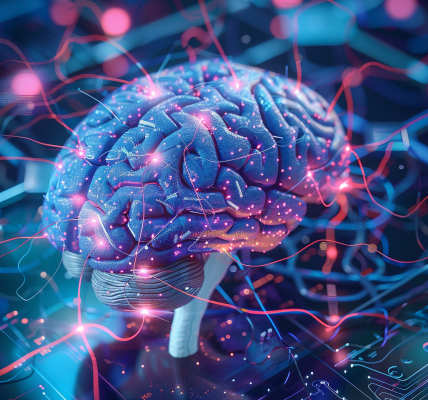Flavonoids and Dementia Risk
Recent research from the U.K. Biobank has revealed a significant correlation between the consumption of flavonoid-rich foods and a reduced risk of dementia. Foods high in flavonoids include tea, red wine, and various berries. This finding is pivotal as it highlights the potential of dietary choices in influencing cognitive health.
Political Beliefs and Brain Structure
In a fascinating study published in iScience, researchers explored the relationship between political conservatism and brain structure. This investigation opens new avenues for understanding how our beliefs may be intertwined with neurological frameworks, potentially affecting our cognitive functions and decision-making processes.
Amyloid and Tau Proteins in Cognitive Decline
Nature Neuroscience has reported on the synergistic effects of early amyloid and tau proteins, which are linked to cortical neurophysiology and subsequent cognitive decline in asymptomatic older adults with a family history of Alzheimer’s disease. This study emphasizes the importance of early detection and monitoring of these proteins to mitigate cognitive decline.
Slap Fighting and Brain Injury
New video analyses presented in JAMA Surgery have raised concerns about the potential for traumatic brain injury in slap fighting contestants. The findings indicate that this emerging sport may have long-term consequences for brain health, warranting further investigation into the safety of such activities.
MIND Diet and Cognitive Impairment
Adherence to the MIND diet, which emphasizes the consumption of berries, green leafy vegetables, nuts, and whole grains, has been linked to a decreased risk of cognitive impairment among women in the REGARDS study. This highlights the importance of nutrition in maintaining cognitive health, particularly in aging populations.
Ethics of Brain Biopsies
The ethical implications of conducting brain biopsies for research during deep brain stimulation procedures have come under scrutiny. JAMA Neurology discusses the need for stringent ethical guidelines to ensure patient safety and informed consent in such invasive research practices.
Deprescribing Antihypertensives and Cognitive Decline
A target trial emulation study published in JAMA Internal Medicine revealed that deprescribing antihypertensives was associated with a reduction in cognitive decline among nursing home residents, particularly those with dementia. This finding suggests that careful management of medications can play a crucial role in preserving cognitive function in vulnerable populations.
Biogen Lawsuit
The city of Baltimore has initiated a class action lawsuit against Biogen, alleging that the company engaged in practices to suppress competition for generic versions of dimethyl fumarate, also known as Tecfidera. This legal action underscores ongoing concerns regarding pharmaceutical practices and market competition.
Autism Screening During COVID-19
In a study published in JAMA Network Open, researchers found that positive screening rates for autism among toddlers born during the COVID-19 pandemic in New York City did not show an increase. This finding is significant as it suggests that the pandemic may not have adversely affected early autism detection rates.
Brett Favre’s Parkinson’s Diagnosis
Retired NFL quarterback Brett Favre has publicly disclosed his diagnosis of Parkinson’s disease. This announcement has brought attention to the neurological health challenges faced by athletes, particularly in contact sports.
Beverly Glenn-Copeland’s Dementia Diagnosis
Composer Beverly Glenn-Copeland has shared his own journey with dementia, raising awareness about the condition and its impact on individuals in the creative arts. His openness helps to destigmatize the discussion around dementia and encourages others to seek support.
These developments in neurology and neuroscience highlight the ongoing research efforts and the importance of understanding the interplay between lifestyle, beliefs, and brain health. As the field continues to evolve, these findings may inform future interventions and public health strategies aimed at improving cognitive health across populations.





